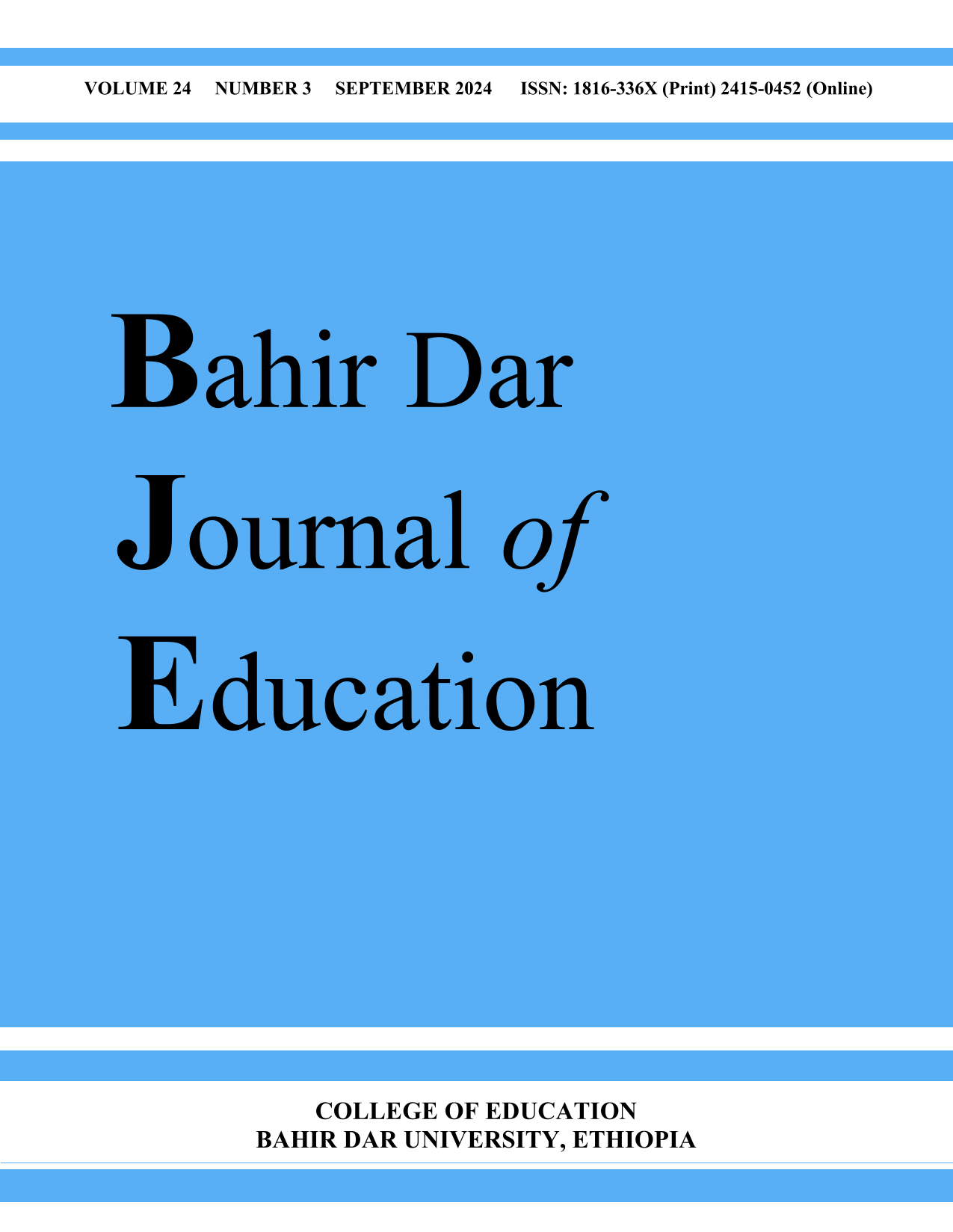Faculty members’ conception and practice of teacher professional development Implications for quality instruction at the university of Gondar, Ethiopia
Abstract
This study aimed to examine faculty members' perceptions and practices regarding teachers' professional development in enhancing instructional quality at the University of Gondar, Ethiopia. To achieve this purpose, a qualitative research approach using a descriptive case study design was utilized. Data were collected from teachers, department heads, the education quality assurance office coordinator, a dean, and the leader of the higher diploma program, of the university through semi-structured interviews, observations, and focus group discussions. Data analysis was conducted through interpretative methods emphasizing narrative description. The findings revealed that teachers hold misconceptions about professional development and exhibit reluctance to engage in professional development activities, such as workshops and meetings. Additionally, the level of academic dialogue among teachers was found to be insufficient, leading to the dichotomization of faculty into 'old' and 'new' categories, which negatively impacted their commitment to professional development initiatives. To address these challenges, it is recommended that teachers cultivate a sense of responsibility and intrinsic motivation toward their professional development while fostering collaborative relationships. Furthermore, the Ministry of Education is urged to redesign and develop professional development training programs that avoid, if not reduce, the one-size-fits-all and top-down approaches currently prevalent in professional development initiatives.
Copyright (c) 2024 Addis Tsegaye Zegeye, Amera Seifu Belayneh, Solomon Melesse Mengstie

This work is licensed under a Creative Commons Attribution 4.0 International License.
Authors who publish with this journal agree to the following terms:
- Authors retain copyright and grant the journal right of first publication with the work simultaneously licensed under a Creative Commons Attribution License that allows others to share the work with an acknowledgement of the work's authorship and initial publication in this journal.
- Authors are able to enter into separate, additional contractual arrangements for the non-exclusive distribution of the journal's published version of the work (e.g., post it to an institutional repository or publish it in a book), with an acknowledgement of its initial publication in this journal.
- Authors are permitted and encouraged to post their work online (e.g., in institutional repositories or on their website) prior to and during the submission process, as it can lead to productive exchanges, as well as earlier and greater citation of published work (See The Effect of Open Access).

